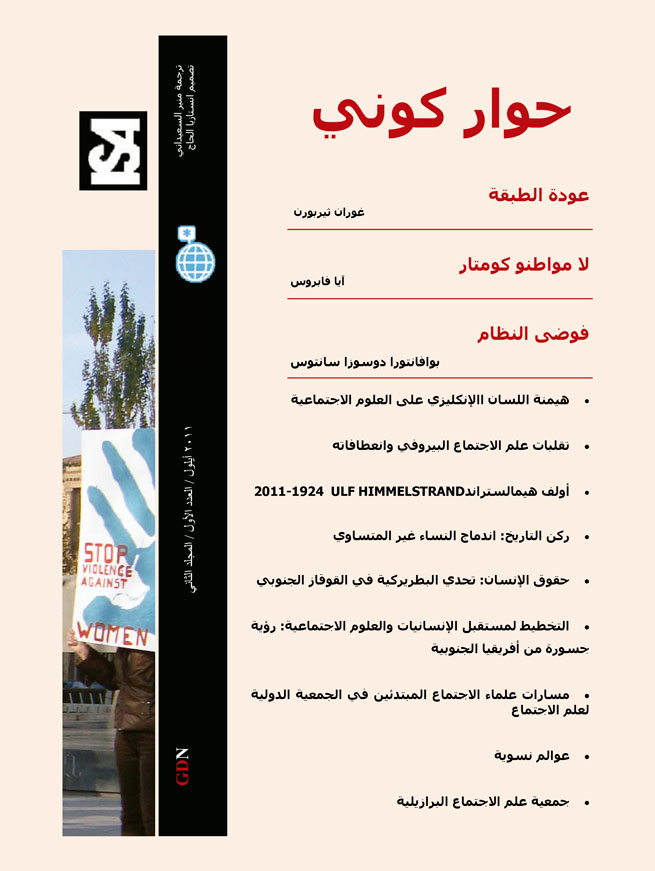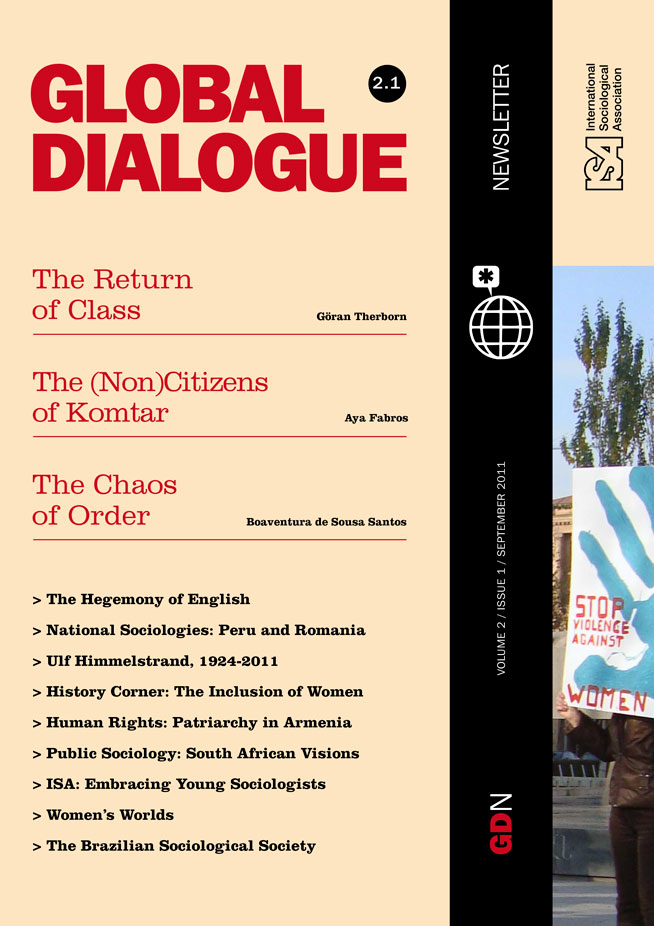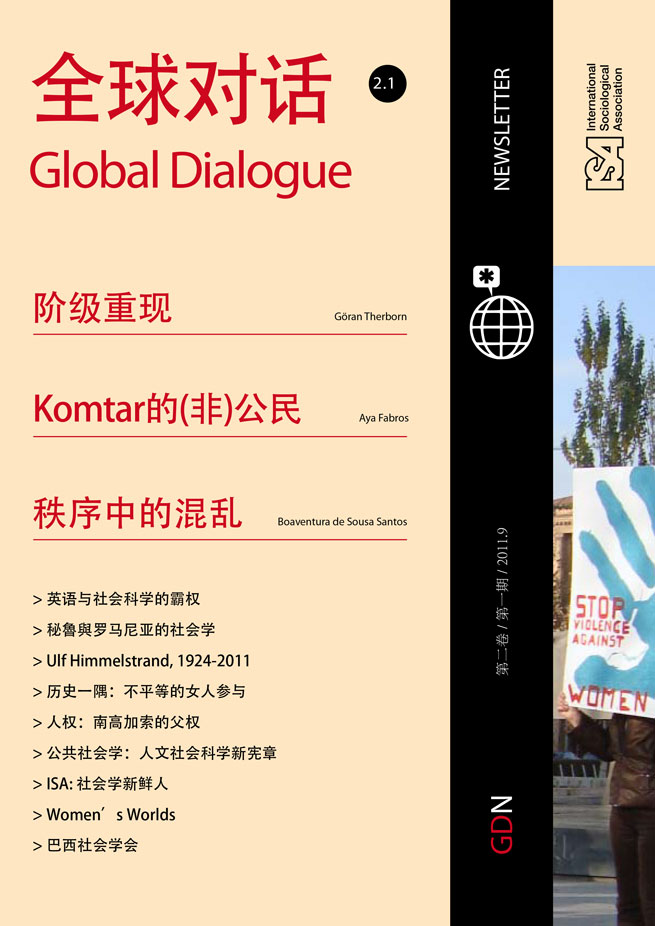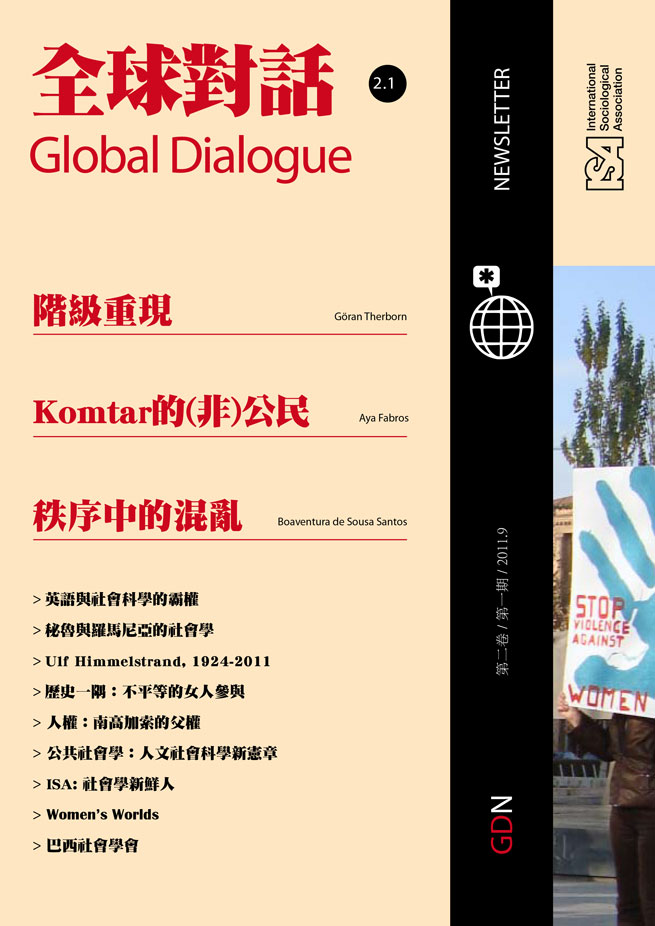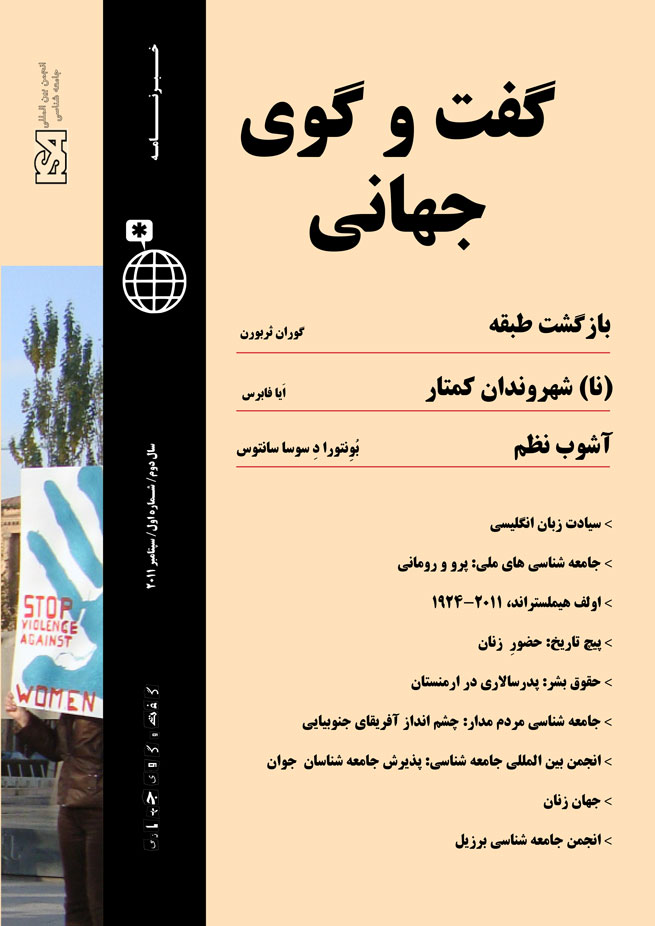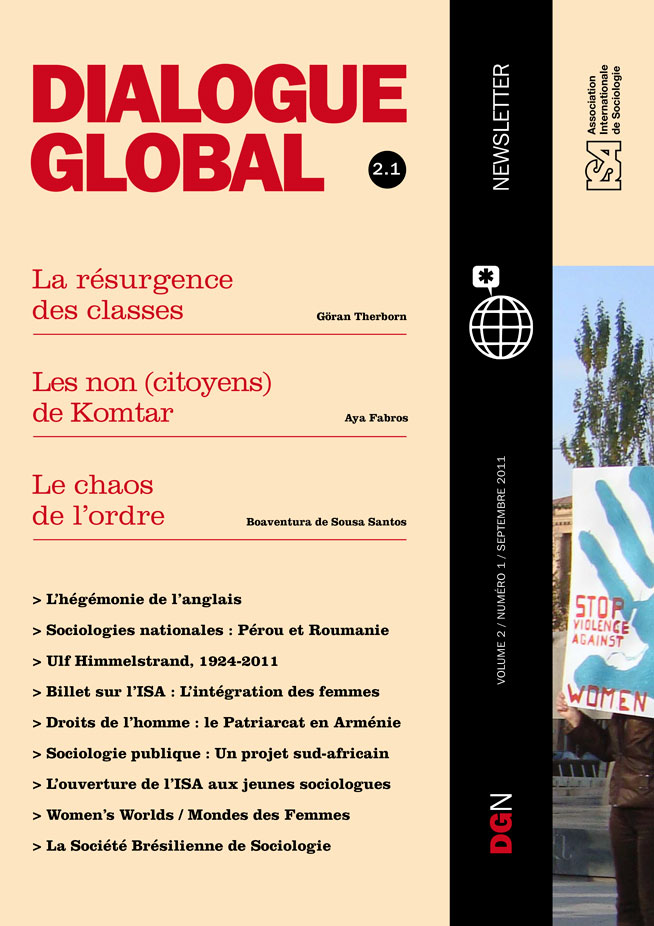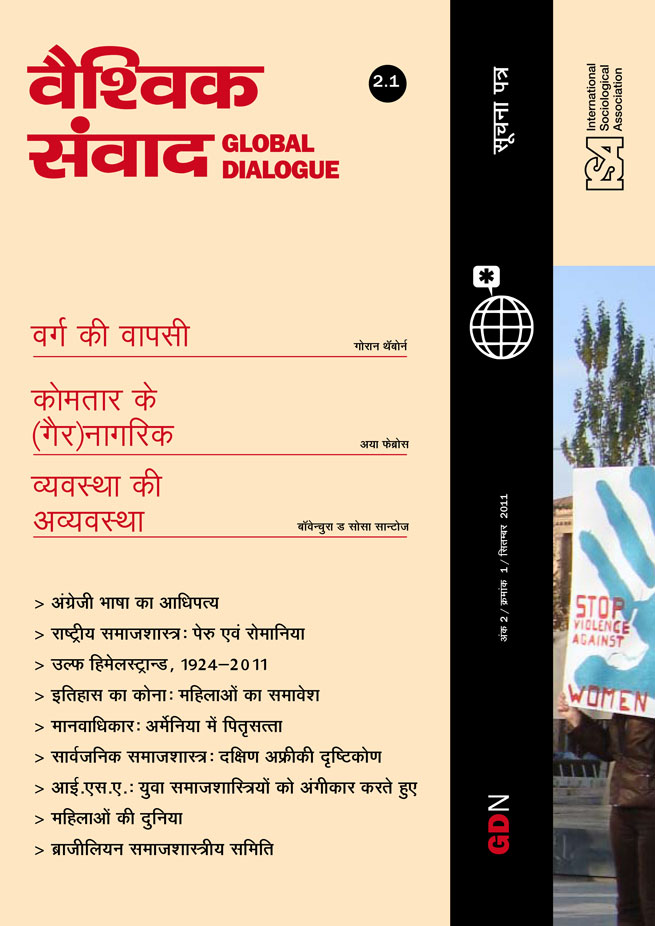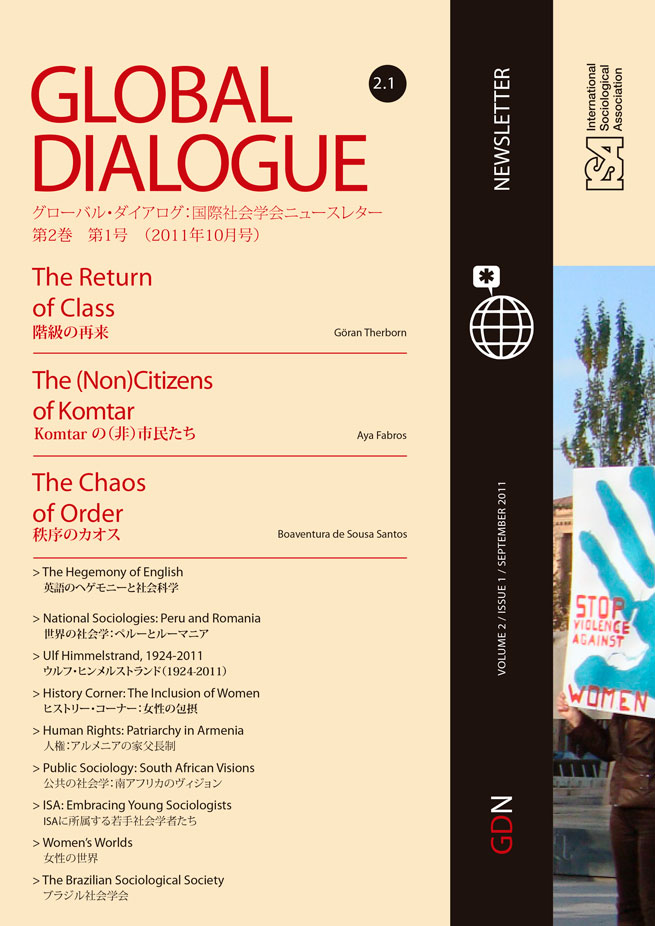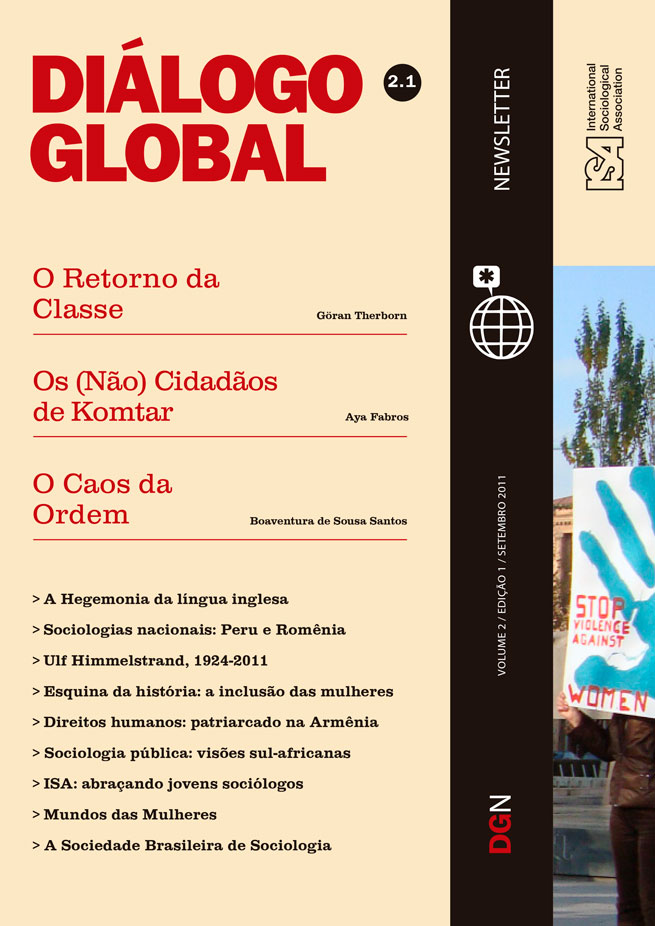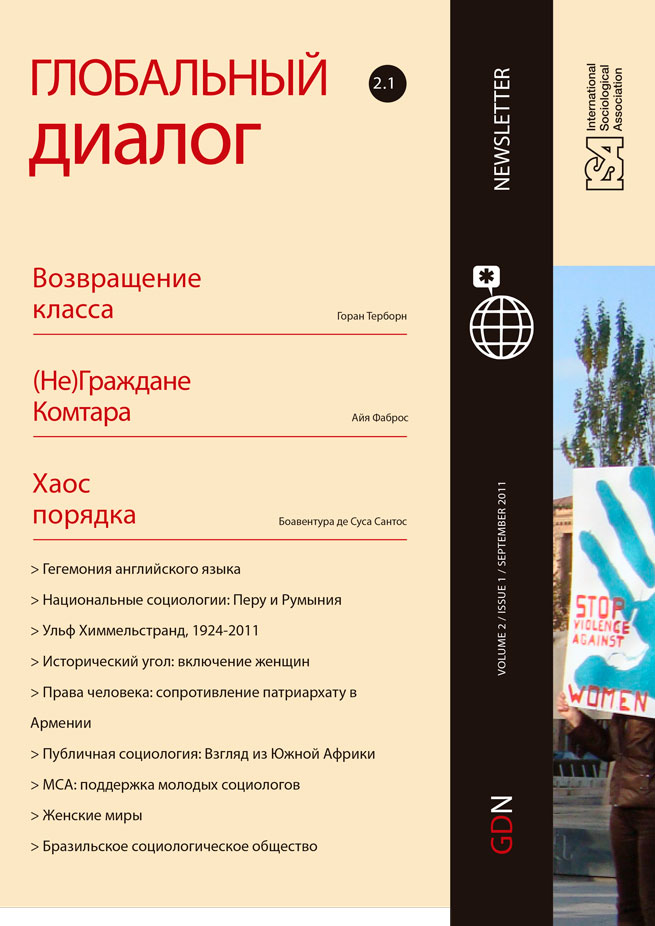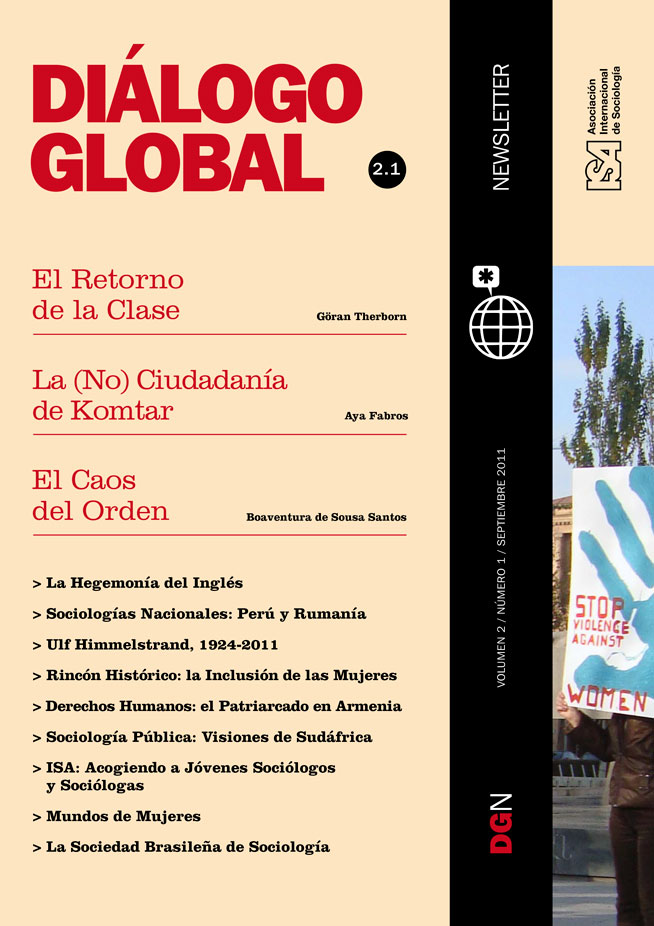Read more about Reports and Conferences
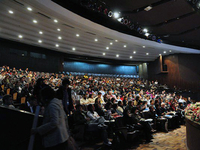
Brazilian Sociology Goes from Strength to Strength
by Elisa P. Reis
Early Career Sociologists in the ISA
by Emma Porio
September 30, 2011
Women’s Worlds, an international interdisciplinary conference on women held every three years in different parts of the world, was co-hosted this year by Carleton University and the University of Ottawa/Université d’Ottawa, with the support of Université du Québec en Outaouais and St. Paul University. It took place in Ottawa-Gatineau, July 3-7. The 2000 registrations, some 800 presenters and participation from 92 countries underline the international breadth of the conference, while the daily plenary was complemented by a plethora of concurrent sessions (often up to 30 sessions in each of 3 time slots for the day). Participants were from academe and activist communities, and had diverse understandings about feminism and the inclusion of women (or its absence). This was a rich opportunity to dialogue and learn from each other.
The overall conference theme was ‘Connect, converse. Inclusions, exclusions, seclusions: living in a globalized world.’ Thus diversity and the international were fore-grounded. There was one theme each day: breaking cycles, breaking ceilings, breaking barriers, and breaking ground – in other words, from challenges to the constraints on women to innovations for a more inclusive and equitable future. Within each of these broad themes, sessions focused on such substantive areas as microcredit, HIV-AIDS, violence against women, women and the arts, and many more. In some sessions traditional conference papers were presented, in others there were conversations among presenters on a structured series of themes (and this was the format of all the plenaries), in still others the organizer led a focused discussion/reflection with those in attendance, and sometimes there were reports of initiatives aimed at greater autonomy or participation by women.
A distinctive feature of Women’s Worlds 2011 was that it was trilingual – in English, French and Spanish. There was limited interpretation, concentrated in the plenaries. Some sessions were bilingual (with informal interpretation if needed) and others were exclusively in French or Spanish. This was also a conference which attended thoughtfully to disability/accessibility (for example, by sign language in sessions and wheelchair accessibility), and to the inclusion of young women, and aboriginal women. Each of these concerns was evident in the conference organization and programming. The inclusiveness and richness facilitated by consultation with advisory groups from each of these communities were evident throughout. Finally, this was a conference of participation by and dialogue between the academy and the community, and was very international in scope.
I have concentrated on conference organization rather than the content of the presentations in the hopes of providing a bit of the flavor of the conference, rather than a necessarily selective account of a few sessions – those I attended.
Members of RC32 of the ISA, Women in Society, were once again active participants at Women’s Worlds 2011: in addition to organizing a RC32 brown bag lunch for exchange of news about our recent and upcoming activities, and a RC32 information table at the WW11 Bazaar, RC32 Chair, Evie Tastsoglou, circulated a list (now on the ISA website for RC32) of the extensive and diverse RC32 participation at Women’s Worlds, all of which helped us get in contact with each other, and showcased RC32.
For more information about Women’s Worlds, including video clips and a discussion forum, along with a full listing of the program – which gives a more comprehensive taste of the range of speakers and topics than I could hope to do – see http://www.womensworlds.ca. The next Women’s Worlds conference is in three years (2014): like the four I have attended since 1993 it is sure to be thought-provoking and energizing.
Ann Denis, University of Ottawa, Canada, President RC05, and former ISA Vice-President for Research 2002-2006
This issue is not available yet in this language.
Request to be notified when the issue is available in your language.
If you prefer, you can access previous issues available in your language:
